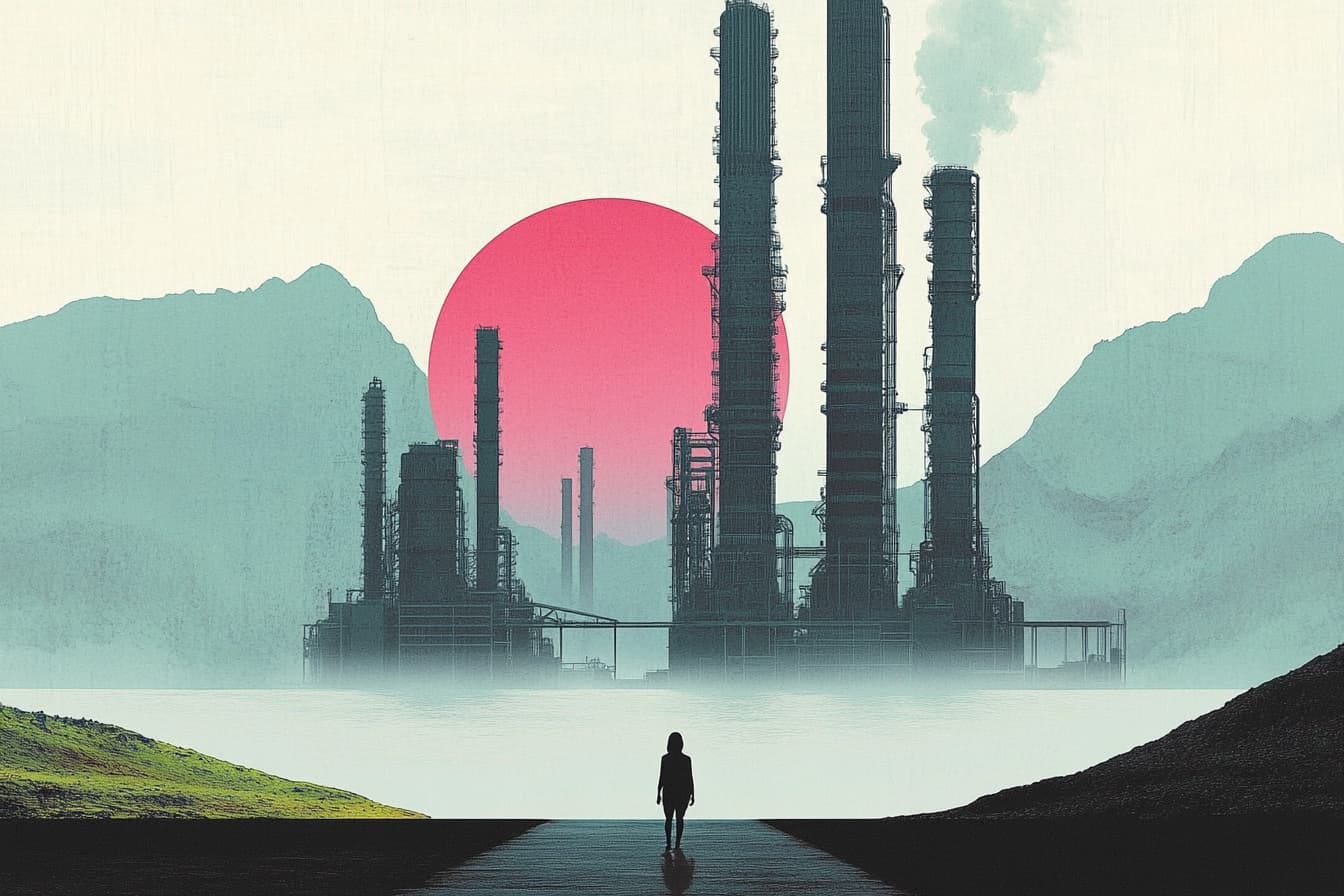In Greek mythology, Hades, the king of the underworld, lures Euridyce into hell. Euridyce's husband, Orpheus, tries to rescue her. Hades tells Orpheus that the couple may leave together, but only if he walks in front of her and he cannot look back to make sure she is following. On their journey out of the underworld, Orpheus begins to doubt and thinks Hades has tricked him. He looks back at Euridyce, and — because it violates the conditions Hades set forth — Euridyce vanishes back into the underworld.
This story was reimagined in the 2019 Broadway musical Hadestown. Orpheus and Eurydice are repeatedly described as "a poor boy and a hungry young girl." Eurydice initially follows Hades into the underworld willingly because Hades promises her something to eat and a way to escape the cold. The underworld is depicted as a factory with never-ending labor endured by those who are trapped in Hadestown, and Hades is its wealthy overlord, instead of merely the god of hell.
Describing Euridyce as "a hungry young girl" is striking, because it reminds the audience that she was chasing basic needs when she followed Hades into hell. Yet Hades was only concerned with amassing more workers for his factory, giving them a bare minimum to survive so they could ultimately serve him.
American workers (where I live and what I experience) are feeling squeezed. This was evident in the outcome of the recent presidential election, with "the economy" ranked as a top concern in exit polls and 43% of people "dissatisfied" with the way things are going.
Without dispensing analysis or digging into the psyche of voters, I can't help but feel that a villain is lurking in the background, one that isn't being talked about enough. That villain is power, and its ugliness has permeated society.
A brief moment of worker power
In one of the earliest editions of this publication, I wrote about the rise of worker power. It was an exhilarating time, with The Great Resignation fueling workers saying, "nope" and walking away from shitty jobs and low pay. While labor movements have historically been associated with blue-collar jobs, there was an increase in interest among technology, service industries, and academic institutions, according to UnionTrack. When the Screen Actors Guild went on strike in 2023, SAG-AFTRA president Fran Drescher admonished studio executives, saying, "We demand respect and to be honored for our contribution. You share the wealth, because you cannot exist without us."
Drescher's exasperation mirrored a sharp shift that happened in a short period of time. Between The Great Resignation of 2021 and today, we've seen CEO salaries jump considerably, now amounting to 200 times what their workers are paid. We've seen companies claw back remote work, ordering employees back into the office — no matter how detrimental to the employees.
Meanwhile, in the same time period when CEO compensation rose 12.6%, worker pay rose 4.1%. In 2022, the inflation rate was 8%. No wonder people are stressed.
Yet Inequality.org points out that rising costs aren't just due to inflation: it's price gouging. CEOs have bragged on earnings calls about how they're able to keep prices high, even as costs go down. While the pandemic and other factors may have temporarily caused prices to go up, they continue to rise even when companies' internal costs have cooled. A report for the Groundwork Collaborative found that corporate profits account for more than half of the cost of inflation. In the four decades prior, corporate profits accounted for only 11% of inflation.
In short: we're being gaslit while we're simultaneously being strangled.
Corporations are controlling the narrative
Why have the headlines proclaimed that workers "need" to be back in the office to boost collaboration and creativity? Why haven't the words "price gouging" been repeated everywhere, instead of inflation?
It's because people in power are controlling the narrative.
They ordered people back to the office to remind them who's in charge.
CEOs publicly cry about inflation and how hard they've been hit while bragging on earnings calls that they can continue to raise prices.
Companies with billions of dollars in profits laid people off as a reminder that everyone is expendable (and to protect their profits).
Even though there are more workers and more consumers, the power disparity ensures that we're fed a distorted narrative. One in which we blame each other, instead of blaming people with all the power to make things better. It's why unions have been vilified over the years. It's why people are scared to leave their jobs now, after exercising so much power during The Great Resignation. Why news outlets don’t question the real motives of return-to-office mandates (such as real estate investments). And it's why we're convinced that inflation is somehow solely the fault of the government, rather than rampant corporate greed.
In the musical Hadestown, Hades sings a song entitled, "Why We Build the Wall." His factory workers build a wall, with Hades singing (and the workers responding):
Why do we build the wall?
We build the wall to keep us free.
The wall keeps out the enemy.
The people in power will do anything to keep it. We need to recognize the real "enemy" for what it is: power, and the people who wield power solely for their own personal gain.
If you love this newsletter and look forward to reading it every week, please consider forwarding it to a friend or becoming a subscriber. Subscribers get access to additional stories I publish.
Have a work story you’d like to share? Please reach out using this form. I can retell your story while protecting your identity, share a guest post, or conduct an interview.




